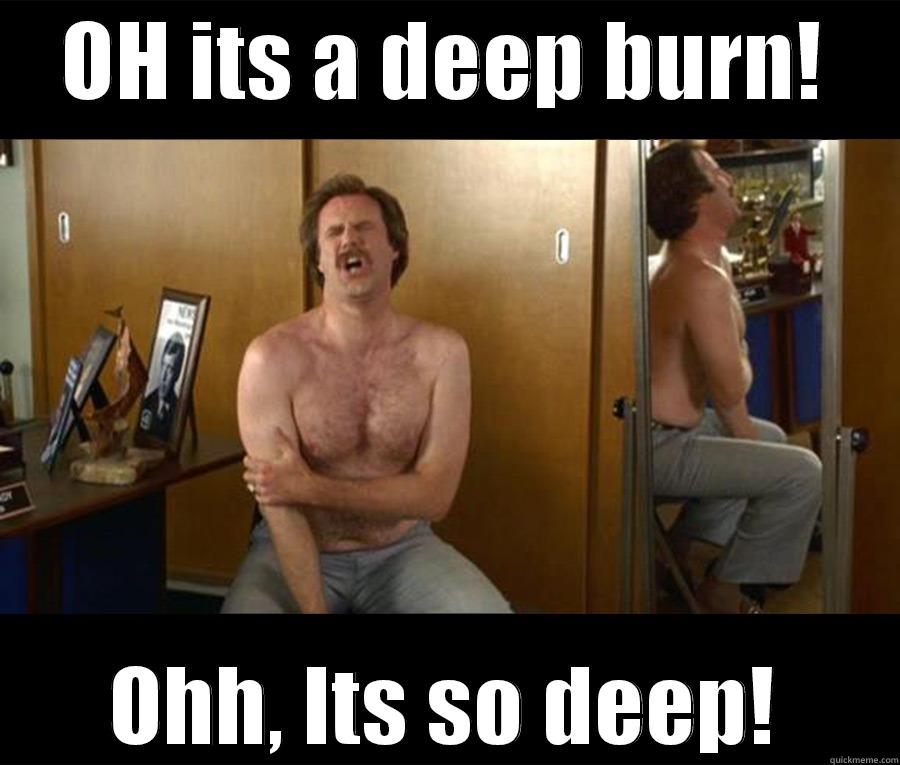That picture was not meant as bait. I truly believe that there is no god and I believe that those who dedicate themselves to believing in him deliberately ignore a significant portion of the real world in front of them. I acknowledge the fact that the world around us is a very complex series of systems and events and that I don't/can't fully understand them all. Just because I don't understand them does not mean that I think some higher power is out there controlling it. However, I do know that there are very intelligent people who dedicate themselves to further understanding those systems, and my "faith" is in their skill. Do they understand everything? Not yet, but that still does not mean there is a higher power. Do they revise their positions based on new evidence? I hope so. If I saw overwhelming evidence of something that contradicts what I understood, I would like to think my beliefs would be revised accordingly.
I do believe everything happens for a reason, and that reason is science (physics, biology, chemistry, psychology and statistics). Simple causality; cause and effect. There is absolutely nothing that says otherwise.
It is very awe-inspiring when you stop to think about the progression of events that lead to any given moment, even something as insignificant as the Deadpool figurine on my desk. How many people, places, decisions, etc had to come together for him to sit there? Despite all of the complexities that made that happen, every person, place, and decision can be tracked through logical means and at no point in any of it did an all-powerful "creator" emerge as responsible for any of it.
What effect has faith had on your life? I truly want to see evidence that your following of scripture is the direct cause of a better life. I know some will say that they gain strength from their fellow church followers. In that case it's not the faith that is responsible, but rather the people you choose to surround yourself with. Being around good people who care about one another leads to better outcomes for the group.
To some, religion is like the "binkie" you're given as a child; it's presence is comforting in a time of waning confidence and troubling times. Society has made it acceptable to be able to carry that mental "binkie" with you openly in public. In that regard, religion/spirituality is quite helpful. This is what I was teaching in lieu of the faith element of cub scouts. Find that thing that gives you mental strength when you need it, and you will go further in your en devours.
In order to get that "binkie" out of a something founded on a book like the bible, the vast majority of it must be ignored (including the fact it has been re-written, politically edited [King James version, anyone?], and translated from stories that weren't written down for hundreds of years after the events allegedly happened). If you have to ignore so much of the "foundation" of your religion, what is the point of following the religion? Too often I see acts carried out by religious "fundamentalists". If they are truly following the fundamentals, again I ask, what is the point of following the religion? To me, it's like perpetuating racism. Sure, you're not flat-out racist (the fundamentalist), but you still smile when an inappropriate joke is told. That smile is just enough to keep that joke alive to be retold again and further enable the teller to continue thinking it's ok. If you're going to follow a "book of lessons", you're better off reading something like Aesop's Fables. You know the stories are not true, but you see the moral guidance the stories provide.
I would argue that you believe in god, not because you have any actual evidence of his existence, but rather because of where you were born and who your parents are. There is no greater influence of your religion and belief structure than where you're raised. You were indoctrinated before you knew any better (given your "binkie") in a region where such religion is the social norm. Once you have that binkie, it's very hard to ever let it go (I'm still fighting with my 10 yr old about not needing hers for bed). It makes you feel good, you learn to function with it in everything you do, which then leads you to think you can never function without it. Fear of losing your binkie or being an "outsider" for not having a binkie is the biggest reason religion is perpetuated. "I needed it to get through my life, I should to give it to my kids so they can get through theirs."
A couple questions I see raised in atheist circles:
If god is an omnibenevolent, omniscient, and omnipotent being, why does evil exist (
The Evidential Problem of Evil)?
Does free will truly exist if god has predetermined our future and decides if we go to heaven or hell (
the paradox of free will)?
Since both rely on the existence of god, the obvious solution to both is that god does not exist.





















